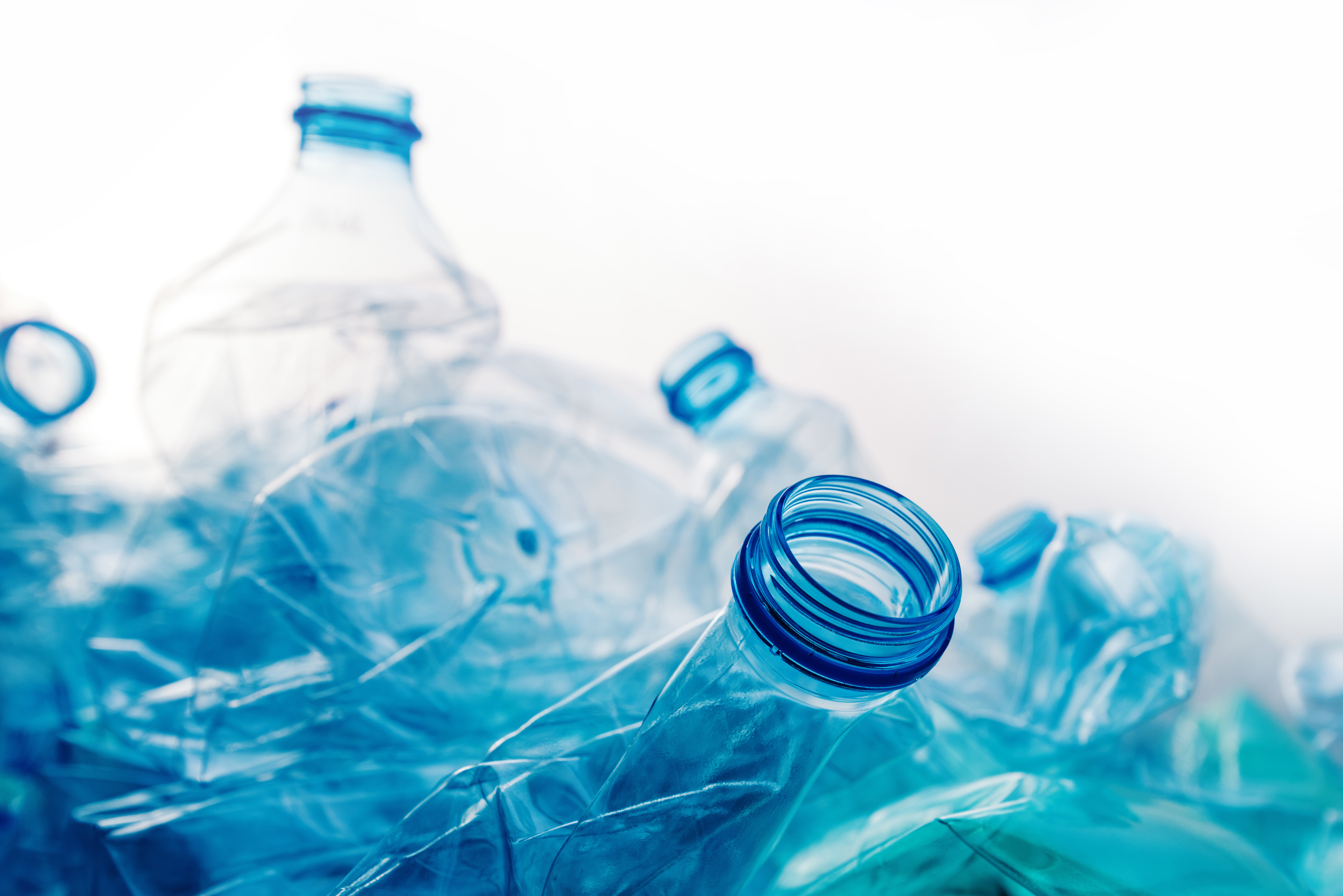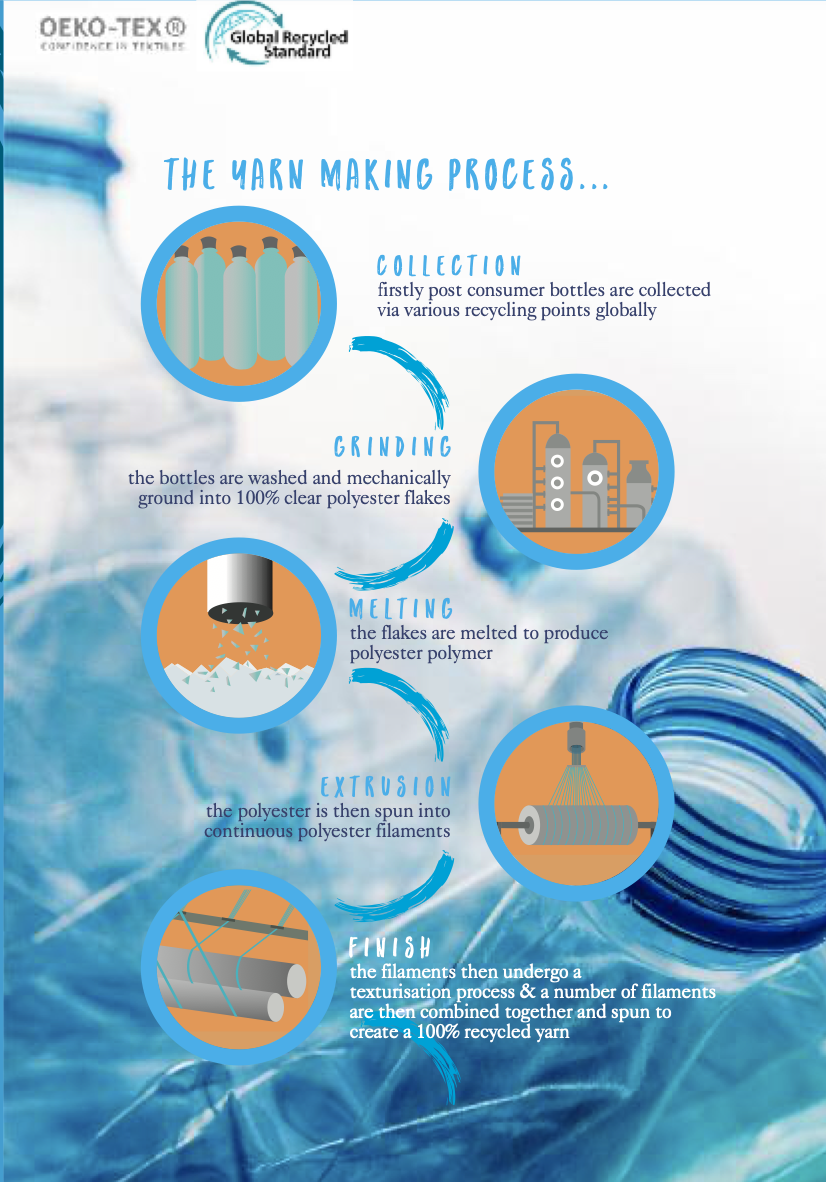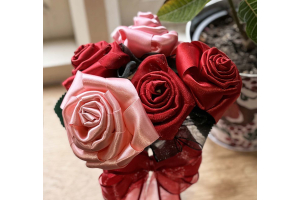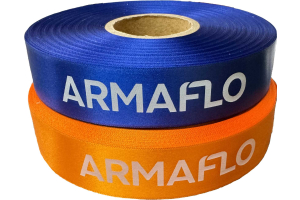
Berisfords Ribbons - Our Main UK Ribbon Manufacturer Makes Massive Strive Towards Sustainability
Form 2020 /2021 berisfords made the decision to move away from virgin polyester yarns in their ribbon production and look at ways to replace these with environmentally friendly alternatives.
The first step in this process was the introduction of a small range of recycled double satin ribbons made from 100% recycled polyester using the branded New Life fibre range which a number of European manufacturers had adopted.,
Berisfords have stated "We wanted to get this right, which is why we have soured a recycled polyester (rPET) yarn to develop a ribbon which not only offers our customers an easier way to do their bit — but helps to dramatically reduce unnecessary plastic waste."
Why? Here are some fast facts about the environmental benefits of our recycled polyester:
- It prevents unnecessary wastage and keeps plastics from going into the ocean or landfill.
- 5 x 2 litre bottles can yield enough fibre to produce an extra-large t-shirt.
- Recycled polyester is just as good as virgin polyester but takes 59% less energy to make.
- Recycled polyester contributes to the reduction of crude oil and natural gas from the earth.
A number of customer have asked why manufacturers do not concentrate efforts more in producing natural fibre ribbons such as cotton, linen etc. Berisfords tell us that once you look in to this option some interesting environmental facts start coming too light.
Here are some fast facts about the environmental impact of cotton:
- It takes 10,000 litres of water to produce 1 kilo of cotton.
- The impact this has had on inland sea levels has driven the UN to declare it one of “the planet’s worst environmental disasters”.
- The levels of water withdrawal diminish river flows, depleting groundwater.
- Cotton is the most pesticide intensive crop in the world, requiring more chemicals than any other crop.
- These hazardous pesticides are often found in nearby water resources.
As a result it makes a lot of sense to spend effort and resources developing reusable man made fibre.
It was for these reasons that Berisfords turned to looking to further develop the use of recycled polyester fibre.
As things stand today, Berisfords have moved over production of all its Core Double Satin Ribbon 3501 product from virgin polyester to recycled yarn. What's more this ribbon is shipped on plastic reels made from 100% recycled post consumer plastic ( mainly plastic fridge parts). In addition even the cellophane cover on the ribbons is biodegradable. On the bulk reels the cardboard code is made from recycled board and can itself be recycled again.
Since this Double Satin range exceeds over 70 shades and comes in nine widths we are now offering this range as our recycled double satin ribbon of choice and have dropped the New Life range which was only available in a limited number of colours.
You can view the range of shades in the 100% recycled double satin Simply Click Here To Be Taken To This Section
Berisfords aim is to switch the whole of the UK manufactured ranges over to 100% recycled yarns in the next twelve months.

The Recycled Yarn process
This process has been illustrated in the flow image opposite, which lays this out in simple terms.
The basis is simple,
Stage One is the collection of clear plastic polyester bottles, these are the 2ltr clear plastic bottles that you commonly see water and fuzzy drinks in at the supermarkets and high street shops.
Stage Two - These bottles are taken to processing plants where they are cleaned and washed, the bottles are then mechanically ground down in to 100% clear polyester plastic flakes.
Stage Three - Once in flakes the polyester is heated and melted in order to produce a polyester polymer.
Stage Four - The polymer is then extruded and spun in to a very fine continuous polyester filament.
The Final Stage - Involves the filaments being textured and plied together with a number of other filaments then spun together to form a finished thread made from 100% recycled Polyester.
The threads are then purchased by Berisfords and other textile companies who take then and weave them in to a ribbon. These then need to be dyed to a specific colour of pattern. In the case of solid shades this process involves dipping the ribbon in dye tanks then sealing the colour in with heat and washing off the excess pigment. This process is repeated to insure colour fastness and the product is batch tested in the lab before being reeled.
This is an abbreviated over view of the main process. However the interesting point is that the finished product is imposible to distinguish from that made from Virgin polyester yarn. Which is a massive step forward in terms of sustainability.





 Facebook
Facebook Twitter
Twitter Pinterest
Pinterest